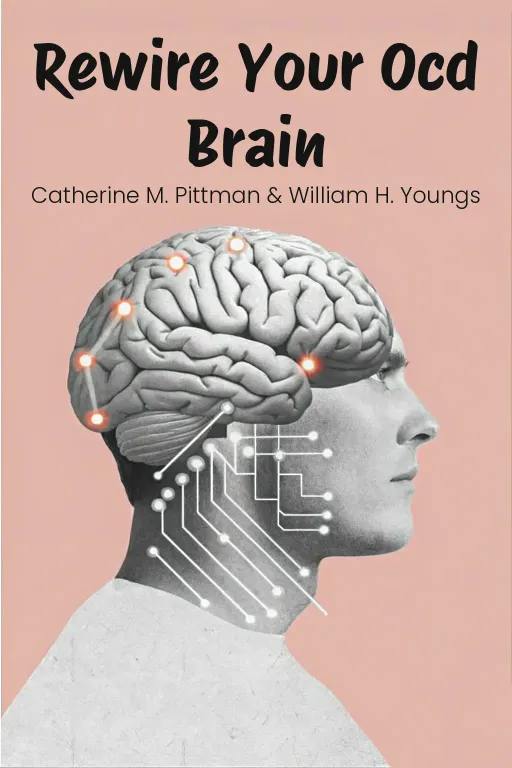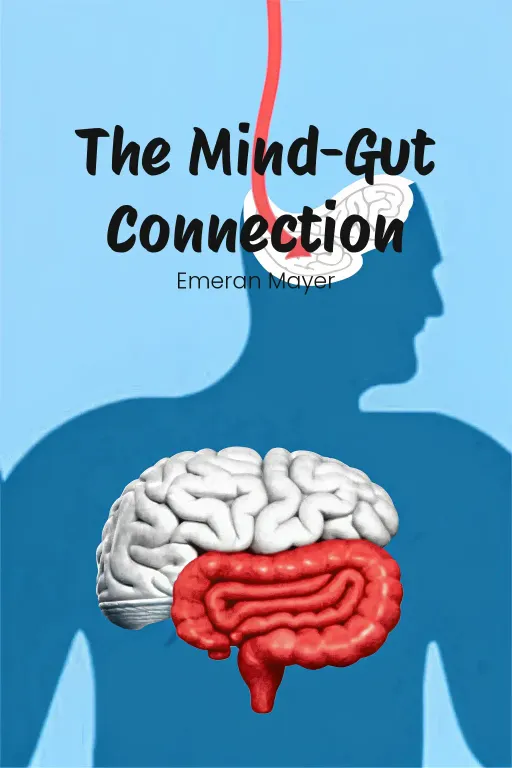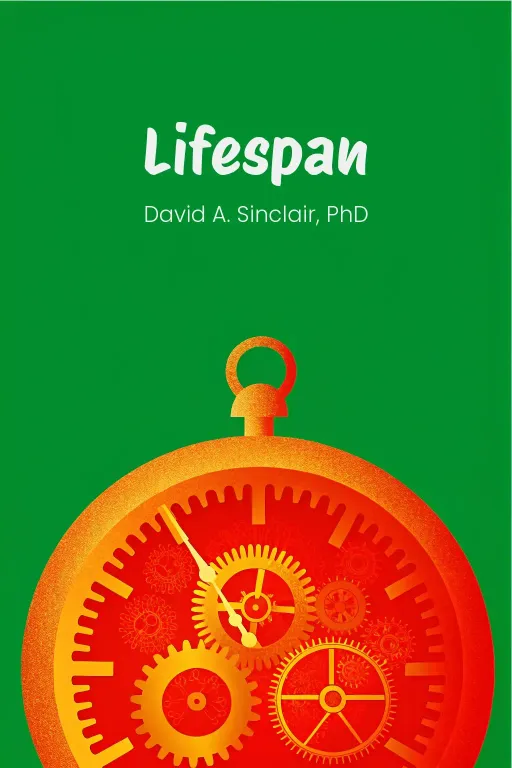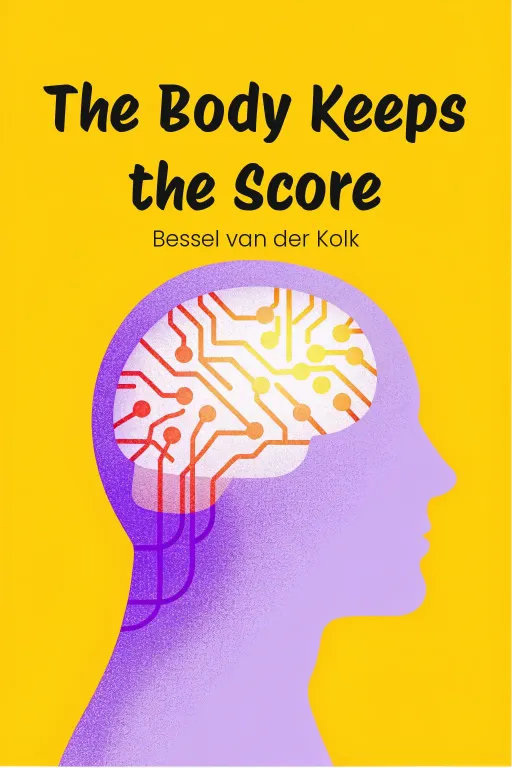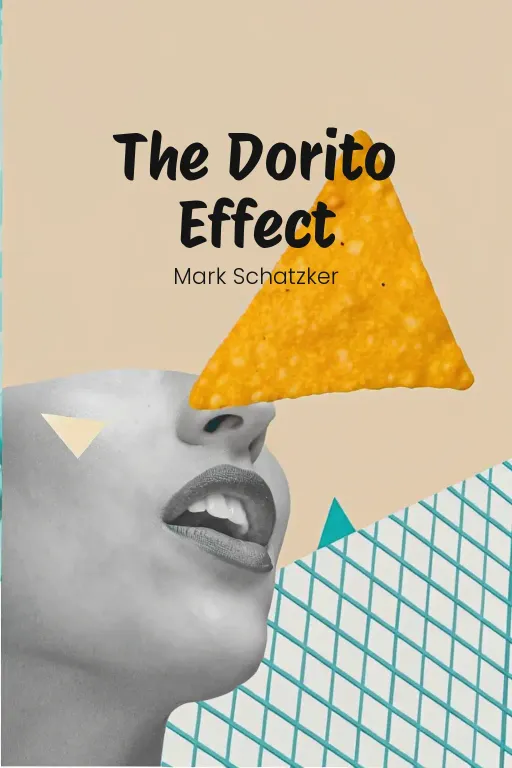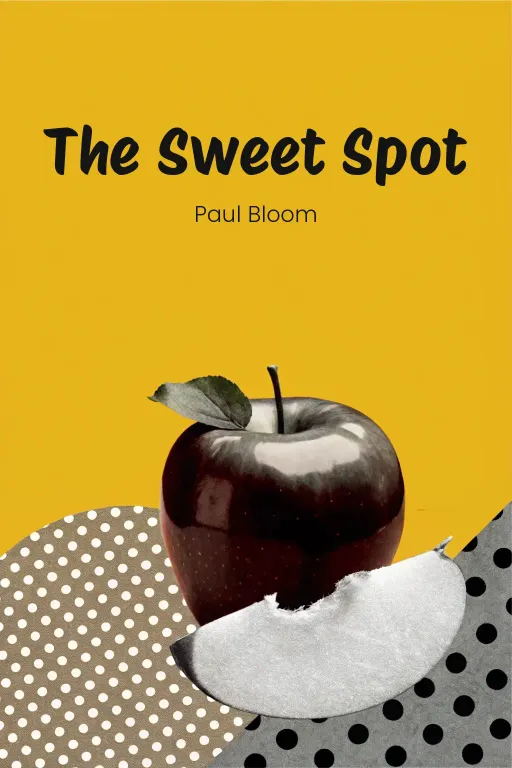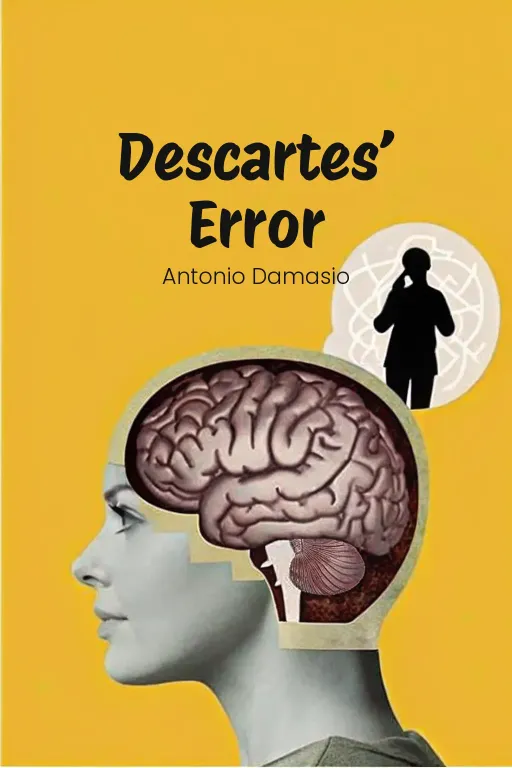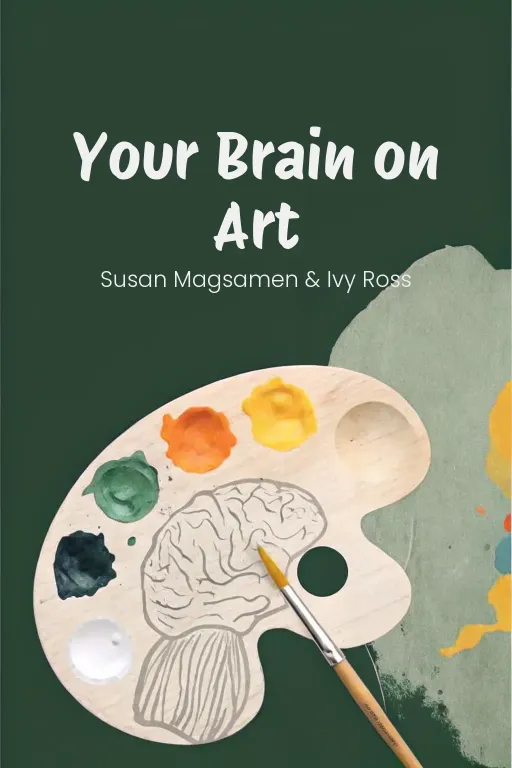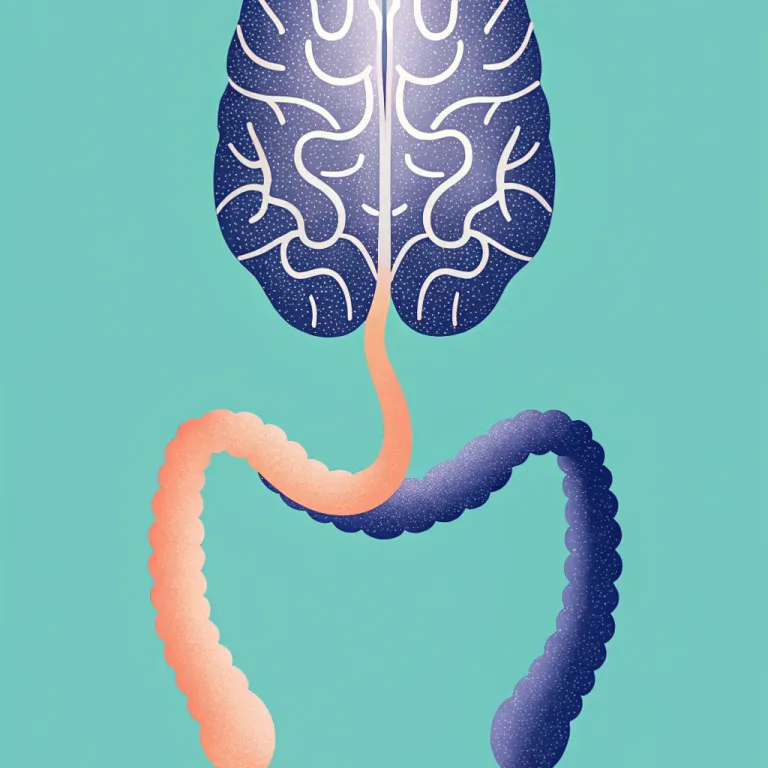
Gut Feelings: Hack Your Brain From Within
Podcast by The Mindful Minute with Autumn and Rachel
How the Hidden Conversation Within Our Bodies Impacts Our Mood, Our Choices, and Our Overall Health
Gut Feelings: Hack Your Brain From Within
Part 1
Autumn: Hey everyone, welcome! Did you know that you've got a whole city of microbes living inside you, constantly sending messages to your brain? I mean, it's like a microscopic metropolis in there! What if I told you this hidden network – your gut microbiome – could be shaping your emotions, your thoughts, and even the decisions you make? Rachel: Hold on a sec. So, you’re saying my craving for that double cheeseburger last night wasn’t just my lack of willpower, but some tiny microbes pulling the strings? That's a little disturbing, isn't it? Autumn: Precisely! Today, we’re going to unravel the science of the gut-brain axis. It's this amazing two-way communication system where your gut and brain are constantly chatting, and that conversation is directly tied to your mental and overall health. Rachel: Okay, so it's way more than just digestion then. Are we saying my stress levels could actually be linked to, say, what I had for lunch? Autumn: Absolutely. And actually, our episode today is based on a really fascinating book. It challenges traditional approaches to medicine by diving deep into this gut-brain connection. The book breaks down how our diet, stress, and even our early childhood experiences can influence the health of our gut. And by extension, our mind. Plus, it gives practical tools, like diet tips and mindfulness exercises, that can bring some harmony to this gut-brain relationship. Rachel: So, we’re going to cover the science behind it, the mood and cognition part of it, and actual, concrete steps we can take to make this microbiome work for us, not against us? Autumn: Exactly. We’re going to cover it all – from understanding the biology behind this gut-brain communication, to how these tiny gut allies impact our feelings, all the way to actionable tips for optimizing our well-being. Let's dive into this remarkable symbiosis that’s happening inside each of us.
Gut-Brain Connection
Part 2
Autumn: So, let's dive into the gut-brain axis. Basically, it's this complex communication network linking your digestive system and your brain. And what's super interesting is that it's not just a one-way street, it goes both ways! Your brain influences your gut, and your gut, with all its microbes and neurons, affects your thoughts and feelings. Rachel: Okay, I get the two-way communication idea. But how exactly does the gut send these messages? Is it like a phone call, or... how does it work biologically? Autumn: That's a really good question. A key player here is the vagus nerve. Think of it as a fiber-optic cable connecting your brain and gut. It's constantly sending real-time updates about what's happening in your digestive system to your brain, and back. For example, if you eat something you're allergic to, the vagus nerve quickly alerts your brain, which might trigger nausea or a gag reflex. Rachel: So, my gut is essentially sending out "mayday" signals when things go south. But what about the other direction? Like, when I'm stressed about a deadline, how does my brain dump that stress into my stomach? Autumn: Stress is a classic example. When your brain senses stress, it releases hormones like cortisol, which directly affect the gut. That's why, when you're super stressed, your digestion might slow down or even stop temporarily. Think about those "nervous butterflies" – that's your gut reacting to your mental state. Rachel: Right, hormones and nerves, got it. But what about those microorganisms you mentioned? How do they fit in? Are they just listening in on this brain-gut conversation? Autumn: Oh, they're not just listening, they're active participants! Your gut is home to trillions of microbes that play a huge role. For instance, these bacteria produce neurotransmitters like serotonin, which we usually associate with the brain. But guess what? Around 90% of the serotonin in your body is actually produced in your gut! They also create short-chain fatty acids, which influence neuroinflammation and mood. Rachel: Wait a minute, you're saying my "happiness hormone" mostly comes from my intestines? So, if my microbiome is off, my mood suffers too? Autumn: Exactly! When your gut microbiome is imbalanced – that's called dysbiosis – it can reduce the production of these key chemicals, potentially leading to mood disorders like anxiety or depression. There's even evidence linking microbial imbalances to cognitive issues like dementia. Rachel: Wow, that's... pretty intense. So next time I'm feeling anxious, I shouldn't just blame my stressful job, I should also consider what I had for lunch? Autumn: Absolutely. Let me give you a real-life example. I had a patient named Bill, who suffered from cyclical vomiting syndrome. For years, his doctors focused on treating the immediate symptoms, but nothing gave lasting relief. It wasn’t until Bill started connecting his anxiety to his gut that he improved his condition with stress-reducing techniques and changes to his diet. His physical symptoms improved significantly once his emotional health was addressed. Rachel: It’s amazing. It really illustrates how we often view health in separate compartments—treating the guy like it is completely separate, instead of a part of the health being completely intertwined. Autumn: Exactly. the gur-brain axis is the perfect example of why should look at health more holistically. The connectivity doesn’t just stay at the vagus nerve. Taking a close look at the gut microbiome shows just how big of an influence it has on brain function--everything from mood to behavior. Rachel: Okay, I want to home in on those microbes for a moment. You were telling me that they can create metabolites and neurotransmitters. But how much will the microorganisms can mess with-- or help-- our mental state? Autumn: Sure. The Toxoplasma gondii is a fascinating case involving rodents. It has the ability to change their behavior by taking away the fear of cats. That works because it makes rodents more likely to be eaten by cats, so it can complete the parasite's cycle. The takeaway is: Microbes are able to dramatically change behavior. Rachel: That’s kind of terrifying. What about positive stuff? Can helpful microbes reverse the issue--calm us and improve our focus? Autumn: They can. Beneficial bacteria helps create key compounds such as GABA, that will help you relax and control the emotion. Some research suggests a more varied microbiome is linked to better emotional resilience--people with flourishing microbial ecosystems can often more easily bounce back from stress. That set the scene for psychobiotics, or probiotics that are created to make mental health better. Rachel: Psychobiotics? that sounds like something you would see in sci-fi. But will we be moving to a future where your supplement replaces your therapy sessions or mindfulness app? Autumn: Not exactly be replacing them, but they complement them for sure. The idea is: If you give a nurturing for the microbiome-- either through probiotics, diet change, or decreasing stress--then you will immediately improve mental well-being. This holistic technique recognizes that your mind and gut do not work in isolation. Rachel: And, surely this isn't only hypothical--it has real studies to support the idea. right? Autumn: Yes. For example, those with depression will have various microbiota profiles vs. healthy individuals. Adjusting those differences through diet or supplementation is definitely a great therapy strategy. Right now, we are testing how exactly to reduce mental health issues using gut targeted treatments. Rachel: Speaking of prevention of imbalances, didn't you note earlier that early life experiences will impact the gut-brain axis as well? Sort of, your gut is affected before you are old enough to make food choices for yourself? Autumn: The baby's microbiome can be influenced to either vaginal or cesarean delivery or if they are breastfed or formula fed. And during those formulative years, trauma or neglect can disrupt microbial development and prepare the stress response for ongoing overactivity. Rachel: So these disruptions make lifelong struggles in both mental and gut health? Autumn: Unforuantely. Rachel Yehuda had research on children of Holocaust survivors as an example. Despite not going through trauma themselves, they had altered stress responses due to epigenetic changes they received from their parents. so early differences can effect the gut-brain axis for generations. Rachel: Wow... that “really” has put the phrase "carrying the weight of your family" into another light. So even family stress has the capabilities to echo into my microbiome? Autumn: Exactly. and knowing this opens doors to reparation techniques. You can break these issues by having a helathy microbiome , probiotics, mindfulness, or even a diet. the gut-brain axis is a constant reminder that the history, body, and mind are all connected in a way that is very deep.
Conclusion
Part 3
Autumn: So today, we're diving into something really fascinating: the gut-brain axis. It’s basically a two-way superhighway between your digestive system and your brain, and it turns out they're constantly chatting! From the vagus nerve acting as a direct line, to your gut microbiome actually producing key neurotransmitters like serotonin, it's becoming clear just how much our gut impacts our emotions, our thinking, even our behavior. Rachel: Wow, okay. So, it's not just a theoretical thing, right? We're talking real-world stuff? Like, anxiety actually tied to gut problems? And studies showing how what happens early in life can shape this gut-brain connection for good or bad? And psychobiotics?! That sounds like something straight out of a sci-fi movie! Are these like, mood-altering probiotics? Autumn: Exactly! That’s where we're headed: holistic approaches that consider the whole picture. The bottom line here is pretty clear: taking care of your gut isn't just about avoiding bloating or indigestion, it's about supporting your mental and emotional well-being too. And maybe even future generations, when you consider how early life experiences shape your gut-brain axis! Rachel: Generational well-being, huh? So, what you're eating now could be impacting your grandkids? That's... intense. Okay, so next time I reach for that questionable gas station burrito, maybe I should think twice. But seriously, what about people who are struggling with chronic stress or anxiety? How would you go about applying this gut-brain connection to their lives?

